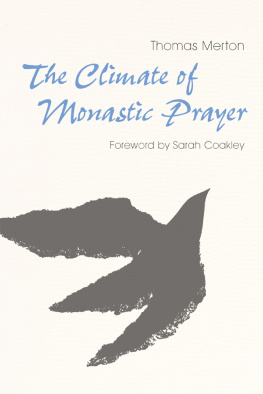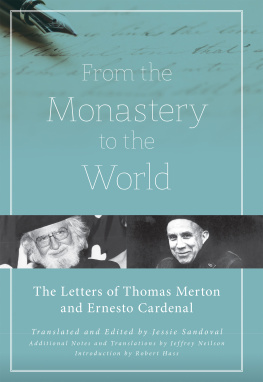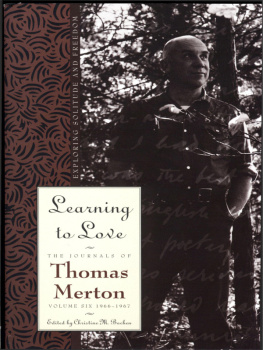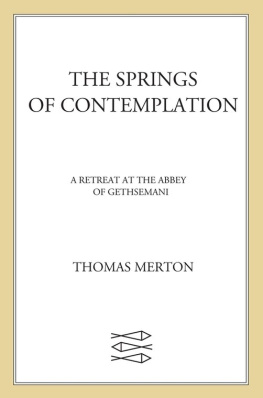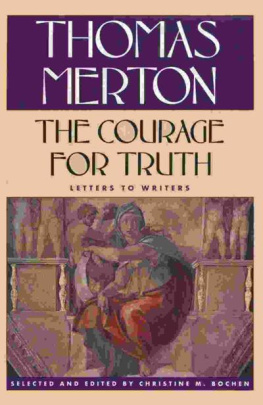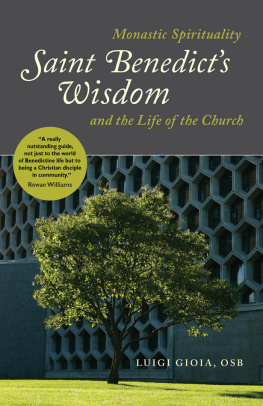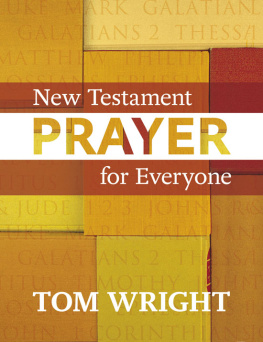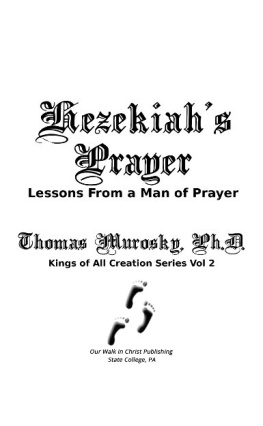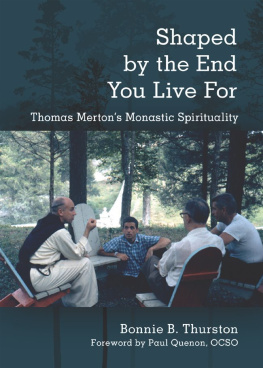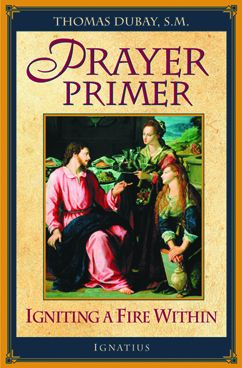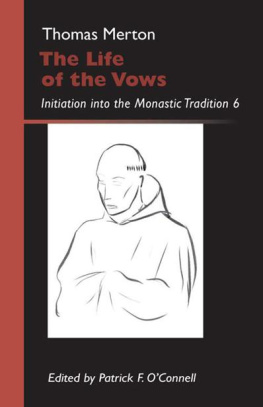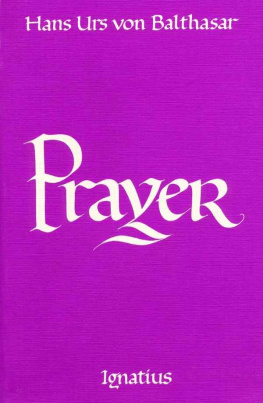Mertons last book, The Climate of Monastic Prayer, is the climax of a lifetime spent in both the practice and the theory of prayer. Its particular benefit is that it takes as its focus the negative experiences that sometimes come to people who pray regularly, the ennui, the confusion, the anxiety, the dread. He tackles these difficulties head on and seeks to find a response to them in the wisdom of monastic tradition.
Fifty years after it was written the book retains a surprising relevance with solid teaching expressed in Mertons typically relevant language. It will come as a revelation to many readers.
Michael Casey, OCSO
Tarrawarra Abbey
Author of Seventy-Four Tools for Good Living
How many different faces Merton revealshere, the serious scholar of monasticism. This process of grounding his identity enabled him to enter deep within, thus to better engage with the outer world. While some may miss his snarky usurper of status quo face, a few glimmers appear: his condemnation of sacrifice thats infantile self-dramatization or prayer that disintegrates into operatic self-display. In this book, Merton addresses those simply trying to keep themselves together, to maintain interior silence and spiritual freedom in a dizzying world. He aptly names the dread of being untrue to our best self, and of standing alone before God in naked need. His counsel: rest in God, find ourselves rooted in concrete experience as well as in Gods truth. His words hold a mirror to our times. No gimmicks nor shortcuts on this path, an invitation to an inner sanctuary and the springs of silence, without which there is no wisdom.
Kathy Coffey
Author of When the Saints Came Marching In
The climate of monastic prayer, Merton says, is the desert, the monastic community, but this wonderful book, from his last years, is for all of us. Merton shows us something he pushed for from the startthat prayer is our breathing, not just close to our life and experience, but totally wound up with every moment of our consciousness, every minute of everyday existence. This is a rich feast for us today, not recipes, but a kind of counseling on prayers omnipresence that we need to hear.
Michael Plekon
Professor Emeritus of The City University of New York
Author of The World as Sacrament
We live in turbulent times and our lives sometimes feel overwhelming. Yet Merton would remind us that the Divine is in our midst and prayer is as much an attitude as something we do. Merton weaves texts from our rich spiritual heritage with his insights on a stance of continuous prayer. Mertons path serves to ground his followers in the present moment and attend to the Divine in our midst. I highly recommend this for our lectio.
Laura Swan, OSB
Associate editor of Magistra
There is no better contemporary guide to the Benedictine tradition of prayer than Thomas Merton! Drawing on the classic image of the desert, Merton invites all women and men to pursue a practice of personal prayer in the hopes of overcoming our tendency toward falsity in order to discover our true selves in God.
Daniel P. Horan, OFM
Catholic Theological Union, Chicago
2018, the Trustees of the Merton Legacy Trust
This work was originally published in 1969 The Trustees of the Merton Legacy Trust.
Published by Liturgical Press, Collegeville, Minnesota. All rights reserved. No part of this book may be reproduced in any form, by print, microfilm, microfiche, mechanical recording, photocopying, translation, or by any other means, known or yet unknown, for any purpose except brief quotations in reviews, without the previous written permission of Liturgical Press, Saint Johns Abbey, PO Box 7500, Collegeville, Minnesota 56321-7500. Printed in the United States of America.
Library of Congress Cataloging-in-Publication Data
Names: Merton, Thomas, 19151968, author.
Title: The climate of monastic prayer / Thomas Merton.
Description: Collegeville, Minnesota : Liturgical Press, 2018. | Originally published: Collegeville, Minnesota : Cistercian Publications, 1969.
Identifiers: LCCN 2017037434 (print) | LCCN 2017058725 (ebook) | ISBN 9780814663813 (ebook) | ISBN 9780814663578
Subjects: LCSH: PrayerCatholic Church. | Monastic and religious life. | Spiritual lifeCatholic Church.
Classification: LCC BV210.3 (ebook) | LCC BV210.3 .M47 2018 (print) | DDC 248.3/2dc23
LC record available at https://lccn.loc.gov/2017037434
WITH DEEP AFFECTION
AND
SINCERE RESPECT
THE EDITORS
DEDICATE
THIS HIS LAST BOOK TO
LOUIS THOMAS MERTON
19151968
... & more to come.
He who walks in darkness, to whom no light appears, let him trust in the Name of Yahweh, let him rely upon his God.
Isaiah 50:10
I will give them a heart to understand that I am Yahweh, and they shall be my people and I will be their God when they return to me with all their heart.
Jeremiah 24:7
CONTENTS
FOREWORD
This is a timely and important moment to reconsider the significance of Thomas Mertons The Climate of Monastic Prayer, here republished fifty years on from its original preparation for publication in 1968.
This was the last manuscript that Merton put together, and he completed the work only just before his famous Asian journey of 1968, which ended in his untimely accidental death by electrocution in a hotel in Bangkok on December 10 of that year. The manuscript was, it seems, sent to the editors of the new Cistercian Studies series in Kalamazoo not long before Mertons departure for the East. It was also to be published by Herder and Herder under a different title (Contemplative Prayer), and was under consideration for some final editorial ameliorations there at the time of Mertons sudden deathto make it more accessible to a non-monastic readership. As it was, both publishers went ahead in 1969 with the manuscript as it had been delivered, with a modest added dedication to Mertons memory on the title page of the Cistercian Studies version (which is here once more reproduced). Added to both publications was a striking foreword by Mertons Quaker friend, Douglas V. Steere, which brilliantly captures the heart of the books insights on the costliness of contemplation.
In all the furore and post-mortem accolades that followed Mertons death, however, the significance of this little gem of a book perhaps met with less fulsome comprehension than it deserved. Especially under the title Contemplative Prayer, it could mislead the reader as to its contents: for it is neither a beginners manual on prayer, nor a handy potted history of the various traditions of Christian contemplation. Indeed, it was, as it happens, pasted together from more than one earlier manuscript, and its contents were probably not originally designed for the monks in the novitiate (as is often presumed), but for a somewhat more mature monastic audience. But throughout, the final amalgam bears the marks of Mertons very particular and personal assimilation of the Christian monastic traditions, both East and West: it involves a historical sweep, to be sure, but with a selective, synthesizing originality imposed upon it. Succinct reflections on key figures in the monastic tradition are combined with passing allusions to everything Merton had learned in the pastand was still learningfrom modern existentialist philosophy, psychoanalytic theory, and various traditions of Buddhist meditation. Moreover, a stern insistence chimes throughout the book that contemplation is no escape from social or political life into individual interiority, but drives one precisely into the uncomfortable maelstrom of political decision. And further: the necessary alignment of

